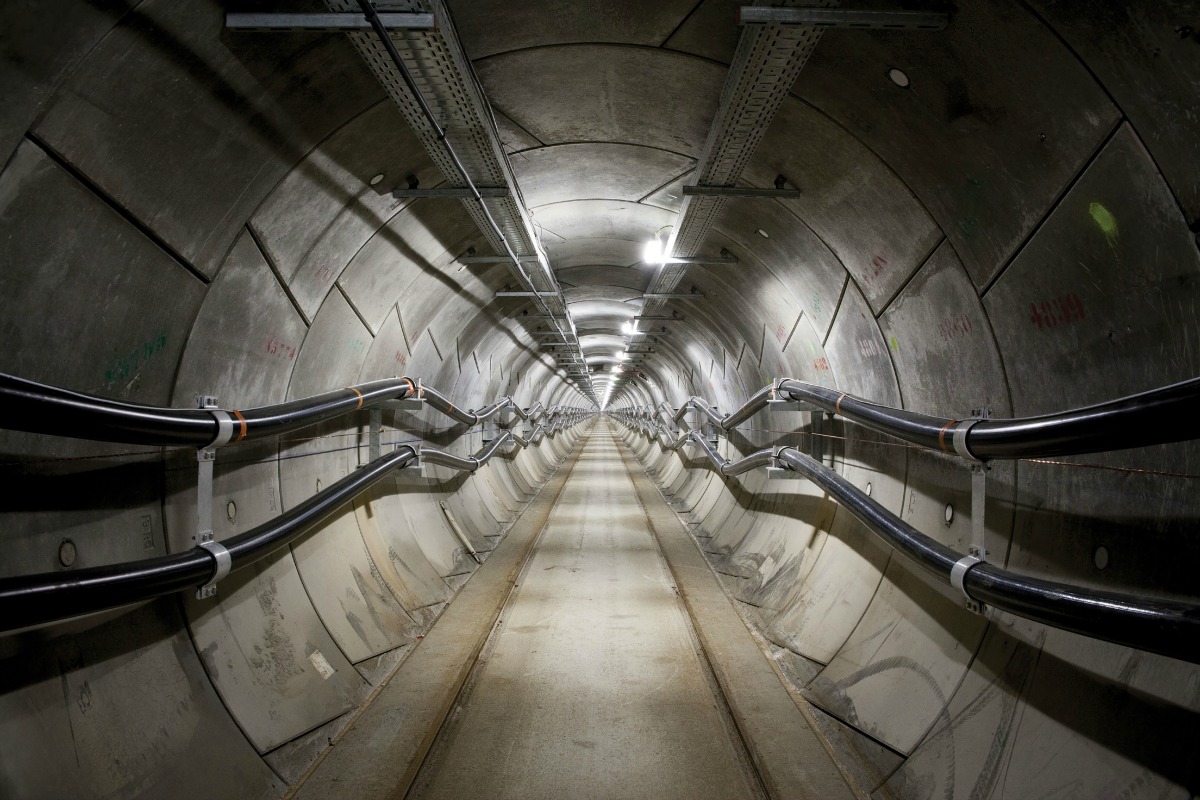What could be going on???
What!??
-
myglaren

- Forum Admin Team
- Posts: 27165
- Joined: 02 Mar 2008, 13:30
- x 5256
-
white exec

- Posts: 7445
- Joined: 21 Dec 2015, 12:46
- x 1758
Re: What!??
Well done, Steve - you got it in one!
We learned, only this week – with no obvious announcements from government or electricity suppliers – that from 1 June (a week's time) that almost every domestic electricity customer will be switched to a new Tariff, called 2.0TD . . .
. Green = low price per kWh
Yellow = 'flat' or mid-price
Red = peak price
We've had variable tariffs for years here, but lots of different ones, which has (as intended) made price comparisons between providers very difficult. Our own one was low price from 22h00 to 12noon, peak price 12noon to 2200h.
Claimed extra Good News is that
1 - all weekends and public holidays will be low price 24/24h
2 - the same times will operate for both Summer and Winter
All this rides on the back of smart meters, which are almost everywhere now. We've had one for around 10 years.
The smart meters will "change the clocks" twice a year, instead of consumers having to remember to re-schedule the washing machine.
BUT - and there are always a BUT's . . .
All the companies can fix the unit prices for each time-slot as they wish, so comparisons are still difficult.
Endesa (the largest supplier) seems about to boast the lowest Peak cost per unit . . . but has wound up the price of the other two!
Half our current bills are standing monthly charges for 'potencia' (i.e. having a power supply), meter rental, government 'green' tax, and VAT at the full 21% on all of those. Not uncommon for us to use €90 of units in a month (currently €0.08/kWh off-peak, €0.17 peak), plus another €90 for standing costs. Not cheap! There has been no announcement about these charges for the new tariff.
Endesa are one of the companies that most consumers here trust about as far as they can throw them, and errors in billing almost always end up very much in their favour, not ours. (We have personal experience of this, when a smart meter managed to get the time of day wrong (9 hours out!) for over a week, resulting is a serious spike in cost. This was never acknowledged or put right, despite the intervention of the Consumer Office here.) None of this inspires confidence. We long ago fitted our own (analogue and calibrated) second meter, so to be able to keep a check on problems. The trouble with remotely-controlled smart meters is that they can very easily be . . . . . remotely controlled. Shift a time slot by just 15 minutes across tens of thousands of meters, and there's big bucks to be had. Suspicious, moi ?
So, it's a 2.0TD for us all!
We learned, only this week – with no obvious announcements from government or electricity suppliers – that from 1 June (a week's time) that almost every domestic electricity customer will be switched to a new Tariff, called 2.0TD . . .
. Green = low price per kWh
Yellow = 'flat' or mid-price
Red = peak price
We've had variable tariffs for years here, but lots of different ones, which has (as intended) made price comparisons between providers very difficult. Our own one was low price from 22h00 to 12noon, peak price 12noon to 2200h.
Claimed extra Good News is that
1 - all weekends and public holidays will be low price 24/24h
2 - the same times will operate for both Summer and Winter
All this rides on the back of smart meters, which are almost everywhere now. We've had one for around 10 years.
The smart meters will "change the clocks" twice a year, instead of consumers having to remember to re-schedule the washing machine.
BUT - and there are always a BUT's . . .
All the companies can fix the unit prices for each time-slot as they wish, so comparisons are still difficult.
Endesa (the largest supplier) seems about to boast the lowest Peak cost per unit . . . but has wound up the price of the other two!
Half our current bills are standing monthly charges for 'potencia' (i.e. having a power supply), meter rental, government 'green' tax, and VAT at the full 21% on all of those. Not uncommon for us to use €90 of units in a month (currently €0.08/kWh off-peak, €0.17 peak), plus another €90 for standing costs. Not cheap! There has been no announcement about these charges for the new tariff.
Endesa are one of the companies that most consumers here trust about as far as they can throw them, and errors in billing almost always end up very much in their favour, not ours. (We have personal experience of this, when a smart meter managed to get the time of day wrong (9 hours out!) for over a week, resulting is a serious spike in cost. This was never acknowledged or put right, despite the intervention of the Consumer Office here.) None of this inspires confidence. We long ago fitted our own (analogue and calibrated) second meter, so to be able to keep a check on problems. The trouble with remotely-controlled smart meters is that they can very easily be . . . . . remotely controlled. Shift a time slot by just 15 minutes across tens of thousands of meters, and there's big bucks to be had. Suspicious, moi ?
So, it's a 2.0TD for us all!
Chris
-
NewcastleFalcon

- Posts: 26252
- Joined: 25 Feb 2009, 10:40
- x 7084
Re: What!??
Good explanation Chris. That feels like food and drink for the Energy Matters Global and Domestic Thread. I'll quote it and reproduce it there.
REgards Neil
REgards Neil
Only One AA Box left
687 Trinity, Jersey
687 Trinity, Jersey
-
myglaren

- Forum Admin Team
- Posts: 27165
- Joined: 02 Mar 2008, 13:30
- x 5256
Re: What!??
Energy companies seem to be very sneaky buggers.
The one I am with comes in for a fair amount of flack but don't seem to have been too bad for me.
Just had a £200 refund from them
The one I am with comes in for a fair amount of flack but don't seem to have been too bad for me.
Just had a £200 refund from them
-
xantia_v6
- Forum Admin Team
- Posts: 9982
- Joined: 09 Nov 2005, 22:03
- x 1072
Re: What!??
I recently heard an interview with the CEO of a French electricity retailing company who claimed that the fastest growing source of cheap electricity in Europe is solar power from Spain (I think that he was talking in the context of retiring the French nuclear power stations). I presume that this solar power is mostly generated during the daytime, so the new tarif regime seems a little out of step.
-
NewcastleFalcon

- Posts: 26252
- Joined: 25 Feb 2009, 10:40
- x 7084
Re: What!??
Posted a reply over here viewtopic.php?p=686520#p686520
Last edited by NewcastleFalcon on 23 May 2021, 10:59, edited 3 times in total.
Only One AA Box left
687 Trinity, Jersey
687 Trinity, Jersey
-
white exec

- Posts: 7445
- Joined: 21 Dec 2015, 12:46
- x 1758
Re: What!??
Solar is becoming big here. Some huge mirror arrays have been around for a while, concentrating reflected heat on to an elevated boilers. Sounds crude, but effective. Large solar PV arrays on buildings, hillsides and farmland.
https://www.google.com/search?q=spanish ... AUnE55VKEM
Spain currently has seven active nuclear stations, I believe, and around ten inactive/being decommissioned.
____________
We visited some new neighbours last weekend. Have bought a house about 300m from us, and spent a lot of money modernising it. This includes a Solar PV array on their garden hillside:
18 (soon to be 24) PV panels, at 400W each (= 7.2kw, soon to be 9.6kW)
Small, neat inverter/controller panel (small suitcase size) in the garage.
Battery bank underneath it, a neat modular cabinet, brand BYD (we know them, don't we?), capable of 13kW output, 3ph.
The whole lot monitorable and controllable from the owner's smartphone, whether he's here or in Germany.
While we were there (sunny afternoon, 4pm) readings were
- PV output, an available 6kw
- output to house/premises, c.3500W - which included heat pumps for both DHW and pool, and pool circulation
- call from the public supply, just 350W.
With the current installation, he can normally produce more energy than he consumes.
Bureaucracy, reluctance and taxes make it unfeasable at the moment to export power to the local grid. Endesa claim the local network is "unsuitable", and have quoted a sell-back figure of just 5¢/kWh [their normal supply rate is around 18¢], which is taxable.
A fascinating chance to see all this working, up-close, and be able to attach some figures to it.
No shortage of funds in this case; our man is an investment banker, he and his wife now both working 'from home'.
https://www.google.com/search?q=spanish ... AUnE55VKEM
Spain currently has seven active nuclear stations, I believe, and around ten inactive/being decommissioned.
____________
We visited some new neighbours last weekend. Have bought a house about 300m from us, and spent a lot of money modernising it. This includes a Solar PV array on their garden hillside:
18 (soon to be 24) PV panels, at 400W each (= 7.2kw, soon to be 9.6kW)
Small, neat inverter/controller panel (small suitcase size) in the garage.
Battery bank underneath it, a neat modular cabinet, brand BYD (we know them, don't we?), capable of 13kW output, 3ph.
The whole lot monitorable and controllable from the owner's smartphone, whether he's here or in Germany.
While we were there (sunny afternoon, 4pm) readings were
- PV output, an available 6kw
- output to house/premises, c.3500W - which included heat pumps for both DHW and pool, and pool circulation
- call from the public supply, just 350W.
With the current installation, he can normally produce more energy than he consumes.
Bureaucracy, reluctance and taxes make it unfeasable at the moment to export power to the local grid. Endesa claim the local network is "unsuitable", and have quoted a sell-back figure of just 5¢/kWh [their normal supply rate is around 18¢], which is taxable.
A fascinating chance to see all this working, up-close, and be able to attach some figures to it.
No shortage of funds in this case; our man is an investment banker, he and his wife now both working 'from home'.
Chris
-
NewcastleFalcon

- Posts: 26252
- Joined: 25 Feb 2009, 10:40
- x 7084
Re: What!??
Interesting stuff Chris. I've also quoted it to capture it for the energy matters thread.
viewtopic.php?p=686521#p686521
Regards Neil
PS here's a nice pic to cement the co-operation between Spain and France

viewtopic.php?p=686521#p686521
Regards Neil
PS here's a nice pic to cement the co-operation between Spain and France

Only One AA Box left
687 Trinity, Jersey
687 Trinity, Jersey
-
Paul-R

- Donor 2023
- Posts: 7601
- Joined: 07 May 2009, 16:24
- x 1534
Re: What!??
Only yesterday I had a letter from Unita containing a cheque to the value of £832.11 for my energy refund. The thing is I don't recognise that name as ever having been my energy supplier.
I looked into this in case they had bought out a previous energy company that had supplied me to no avail. What I did find was that the repayment is for excessive charges that they had made to customers withy pre-payment meters. But we've never had a pre-payment meter since we moved in to this house in 1983! I'm going to bank it tomorrow and just play dumb if questioned later.
I've not told anyone else so keep this to yourselves, OK?
As I get older I think a lot about the hereafter - I go into a room and then wonder what I'm here after.
Inside every old person is a young person wondering what the hell happened.
"Trying is the first step towards failure" ~ Homer J Simpson?
Inside every old person is a young person wondering what the hell happened.
"Trying is the first step towards failure" ~ Homer J Simpson?
-
Sloppysod

- (Donor 2025)
- Posts: 1160
- Joined: 23 May 2015, 23:35
- x 282
Re: What!??
Chris, Could you run a 300m cable and pay your neighbour 10¢ for his unused power?white exec wrote: 23 May 2021, 10:51 We visited some new neighbours last weekend. Have bought a house about 300m from us, and spent a lot of money modernising it. This includes a Solar PV array on their garden hillside:
Bureaucracy, reluctance and taxes make it unfeasable at the moment to export power to the local grid. Endesa claim the local network is "unsuitable", and have quoted a sell-back figure of just 5¢/kWh [their normal supply rate is around 18¢], which is taxable.
Stu 
"Some cause happiness wherever they go, others whenever they go"Oscar Wilde (1854-1900)
"Some cause happiness wherever they go, others whenever they go"Oscar Wilde (1854-1900)
